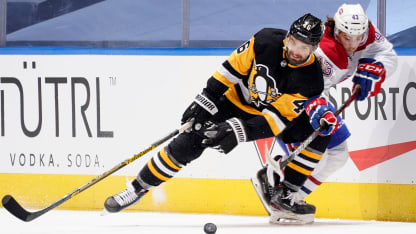We'll start with the start. The Penguins came out absolutely flying from the drop of the puck and outshot the Canadiens 9-1 in the opening 10 minutes of play. Unfortunately, they weren't able to get one past Carey Price, but if they had, this could have been a different game as they would have had all the momentum on their side. Instead, the Canadiens showed some quick-strike capability and built a 2-0 lead early in the second. After that, to their credit, the Penguins did battle back with a couple of dirty goals (more on that below) to even the score.

